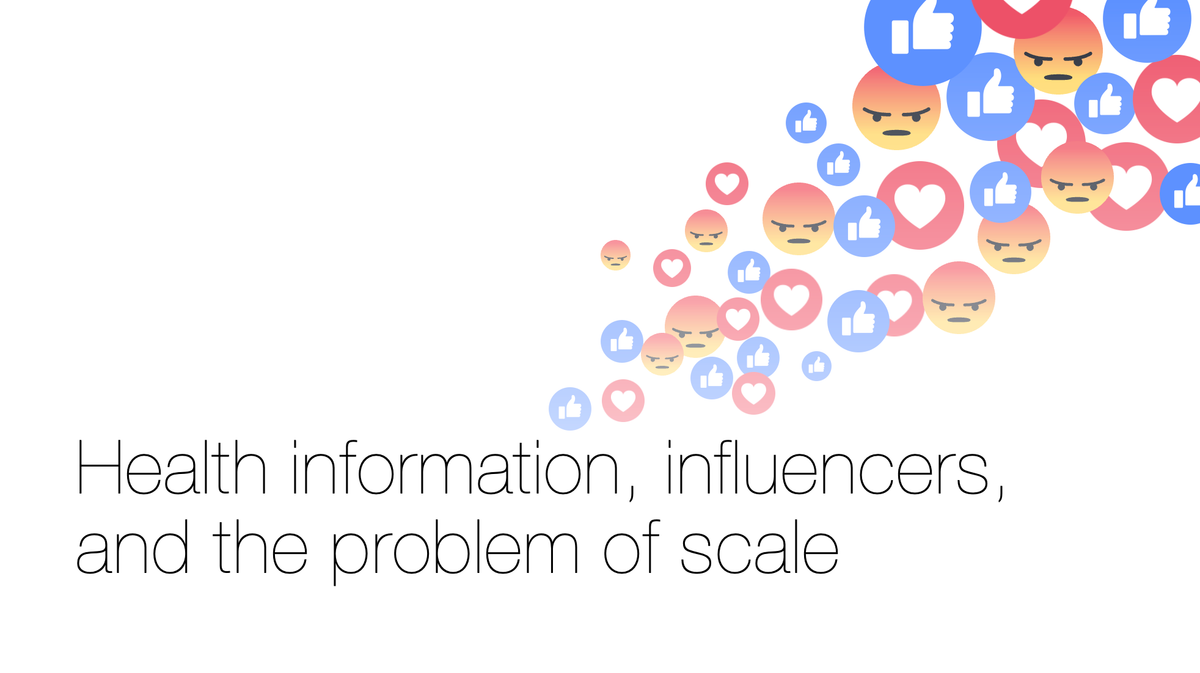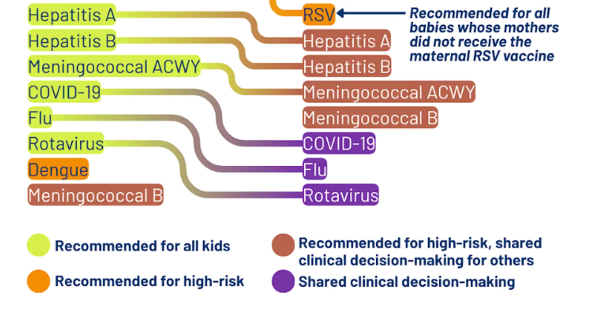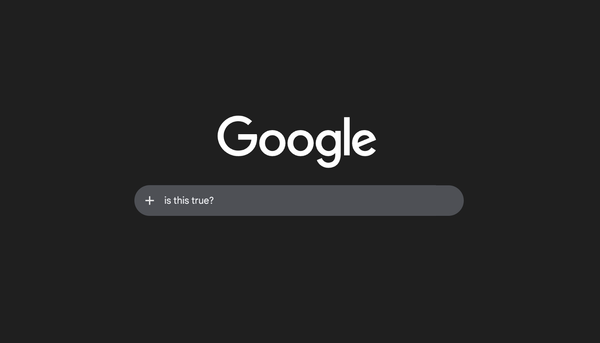That's a great question: health information, influencers and the problem of scale

Last month I wrote an article about shame and why criticizing "anti-vaxxers" backfires, and I got some great comments and feedback from you.
Some of the questions were so thoughtful, they deserve an in depth response, so I've decided to try out something new. Instead of burying the answer in the comments section, every month or so I will pull out a thoughtful question from y'all that reflects the curiosity, concerns, or confusion that many people have and write an in-depth answer here.
This month's question comes from Dr. Frank Han, a pediatric and adult congenital cardiologist, in response to the article on the importance of empathy and the backfire effect of shame when discussing vaccines. Here's what he asked:
1. Problem of scale: I would be happy to show up and share commentary with empathy with those who want to discuss public health/ vaccine issues, except the Joe Rogans of the world win over many millions of followers per episode that we spend speaking with a few audience members in a small conference room. How would showing up with empathy ever hope to catch up to our largest social media influencers who say the contrarian thing for profit?
This is tough. I agree – one doctor showing up with empathy in a conference room is unlikely to counteract the effect of large platforms sharing inaccurate information and vilifying physicians and health institutions. But 10,000 doctors (and nurses, scientists, public health workers) showing up in their communities can start to tip the scales. And I have no doubt there are at least 10,000 of us that care deeply about this problem.
People still overwhelmingly prefer to get health information from a doctor; the challenge is often lack of opportunity to ask their questions, either due to lack of health insurance, long wait times, short visit times, etc. Podcasts are filling that void in a way that the medical world has not yet figured out how to do. This is part of why I'm a advocate of doctors showing up on social media – it's one more avenue people can get access to reliable health information.
While this problem can feel insurmountable due to the scale, local efforts to meet people where they are can have a real impact. Our alternative is either 1. not show up at all or 2. show up without empathy – both of which are counterproductive. Communication grounded in empathy and focused on our local sphere of influence is our most productive path forward.
2. Consequences: We are beholden to saying everything absolutely correctly every single time and owning our mistakes when we do so. The Robert Malones and Peter Mculloughs of the world can say wrong stuff as much as they want and get paid for it. If we may not criticize these peoples motivations, how will the public know how misguided they are? People like me don't want families to wait until their kids actually catch pertussis for them to realize that Pierre Kory was not a good role model.
The double standard is extremely frustrating. It is strange watching people call doctors "pharma shills" for promoting vaccines that they make no money from, while wellness influencers who make thousands of dollars from selling supplements are branded as champions of health. The hypocrisy is certainly discouraging.
I don't think there is one right answer to this question. Making people aware of conflicts of interest can be helpful, but it depends on how it is done. If we focus our criticism primarily on the person and/or the money they are making and don't address the genuine questions people have about what that person is saying, it can come across as an angry ad hominem attack, which will turn a lot of people away. And making money doesn't automatically mean somebody is wrong, it just puts that person at higher risk for bias when the information they are providing is linked to their income stream. If you're going to highlight conflicts of interest, my recommendation is to make sure it's paired with an explanation of why the information they're spreading isn't accurate, and focus more on the inaccurate information than the person's character.
3. Inequal exchange: I do acknowledge the need to build trust before sharing information, but there are so many examples of the #MAHA ecosystem insisting that we listen to them empathetically first but not extending the same courtesy in return (reference Calley and Casey Means). How would you meet them in the middle if they won't agree to the same basic room rules?
It's helpful to distinguish between the "MAHA" public figures like RFK Jr and Casey Means and the everyday people who have concerns aligned with the MAHA movement. Attempting trust-building conversations with leaders who have a track record of sowing distrust and making modern medicine out to be the villain will likely not be helpful. For example, Peter Hotez declined to "debate" RFK Jr on the Joe Rogan podcast, and I think that was the right move, as that conversation was unlikely to be productive (wrote more about that here).
Instead, time is best spent with people who want to engage in good faith conversations. These are the everyday people who have genuine questions that aren't getting answered, not the influencers who have already made up their minds or people in the comments section who just want to argue and aren't interested in new information. For an example on how to do these conversations well, I highly recommend the Why Should I Trust You podcast, which models listening, understanding, and empathy without ignoring the reality of how damaging inaccurate health information can be.
I hope this Q&A was helpful – thank you to Dr. Han for the excellent and thought-provoking questions. If you have a question you'd like considered for the next post, comment below or send me an email at kristen@youcanknowthings.com.
Kristen Panthagani, MD, PhD, is completing a combined emergency medicine residency and research fellowship focusing on health literacy and communication. In her free time, she is the creator of the medical blog You Can Know Things and author of Your Local Epidemiologist’s section on Health (Mis)communication. You can subscribe to her website below or find her on Substack, Instagram, or Bluesky. Views expressed belong to KP, not her employer.




